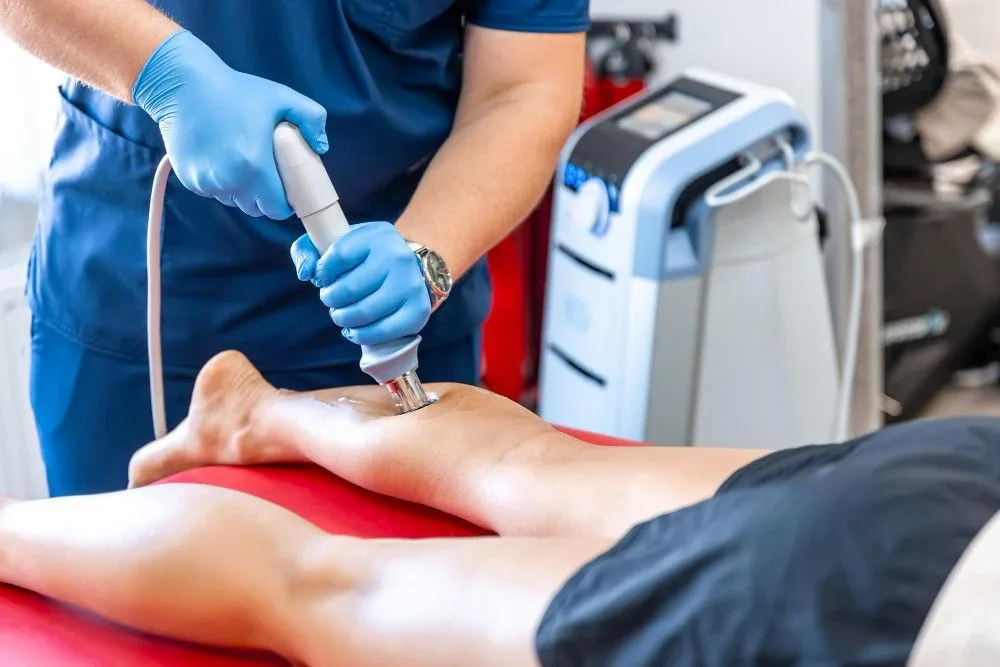Do you have an earache that’s oddly making your jaw hurt too? This might make you wonder, "Can an ear infection cause jaw pain?" You're not alone—and there's a good reason behind it. Since your ear and jaw share nerve pathways and are anatomically close, pain from one can radiate to the other. Let's understand through this blog how ear infections can be a hidden culprit behind your jaw pain and what you can do about it.
Can an Ear Infection Cause Jaw Pain?
Yes, an ear infection can cause jaw pain. Inflammation and pressure in the middle or outer ear can affect nearby nerves and joints, especially the temporomandibular joint (TMJ), leading to discomfort in the jaw area.
Why Do Ear Infections Cause Jaw Pain?
Ear infections can lead to jaw pain due to shared anatomical and nerve connections. This is how an earache contributes to jaw pain:
-
Inflammation & Swelling: By causing swelling and inflammation, ear infections can spread to the jaw muscles and induce pain.
-
Pressure on the TMJ: Swelling can further put pressure on the Temporomandibular joint (TMJ), which connects the jaw and the skull.
-
Blocked Eustachian Tube: By blocking the eustachian tube, ear infections create a pressure imbalance that impacts the jaw joint and causes pain.
Common Symptoms of Ear Infections That Affect the Jaw
-
Sensation of fullness in the ear
- Reduced or muffled hearing
-
Swelling around the ear
-
Headache or facial tension
-
Fever (in certain cases)
- Pain around the ear or side of the face
Other Possible Causes of Jaw Pain
Jaw pain isn’t always due to an ear infection. Here are some other common culprits:
| Cause | How It Leads to Jaw Pain |
|---|---|
| TMJ Dysfunction | Caused by teeth grinding, poor alignment, or joint wear-and-tear |
| Tooth Grinding (Bruxism) | Overuses facial and jaw muscles, leading to soreness |
| Oral Infections | Tooth decay, gum disease, or abscesses radiate pain to the jaw |
| Sinus Infections | Pressure in inflamed sinus cavities can affect the jaw |
| Jaw Injuries | Trauma from impact or strain can lead to prolonged pain |
| Muscle Soreness | Stress or overuse causes tightness and aching in jaw muscles |
Managing Jaw Pain from Ear Infections at Home
Try the following effective home remedies:
-
Pain Relievers: Over-the-counter (OTC) pain medications like ibuprofen and acetaminophen can relieve jaw pain and inflammation caused by an ear infection.
-
Cold & Warm Compresses: Use a cold or warm compress on the affected area for about 15-20 minutes to get relief from pain. Cold subsides inflammation, while heat helps calm jaw muscles.
-
Over-the-Counter Ear Drops: Certain OTC ear drops can moisturize the ear canal and reduce ear pain, especially if it is caused by wax buildup and swimmer's ear (infection of the outer ear canal).
-
Jaw Massage: A gentle massage of the jaw muscles and nearby areas can reduce muscle tension and thus, pain.
-
Rest: Giving rest to your jaw by avoiding chewing anything, biting hard things, and talking too much. This can alleviate pressure on the jaw, which triggers pain.
-
Soft Foods: Consume soft foods such as soup, yogurt, bananas, and oatmeal to prevent stress on the affected jaw muscles.
Note: If jaw pain worsens or doesn’t improve within a few days, and you find it hard to move your jaw, consult a healthcare provider immediately.
When to See a Doctor?
Consult otolaryngologists or ENT doctors without any delay if you experience:
-
Unbearable, persistent jaw pain with ear discomfort.
-
Signs of infections, like swelling and fever
-
No improvements in the symptoms within some days of home remedies
-
Immediate pain after an injury
-
Swelling of the gum
-
Inability to eat and drink
-
Unable to sleep and perform daily activities
Along with an ear infection, other conditions such as sinus infections, dental issues, and TMJ disorders could be the root cause.
Treatment Options for Ear Infections
1. Antibiotics:
-
If an ear infection is caused by bacteria, the providers may prescribe antibiotics like Amoxicillin to kill infection-causing bacteria.
-
In case Amoxicillin is ineffective, Augmentin (amoxicillin/clavulanate) is recommended.
2. Pain Medications:
-
Doctors may prescribe pain medicines (e.g., ibuprofen or aspirin) to relieve pain.
-
Also, it can reduce the fever that comes along with an ear infection.
Important: Aspirin should not be given to children due to the risk of Reye’s Syndrome—a serious condition that affects the brain and liver.
3. Surgery:
-
Surgery, like myringotomy, is recommended for recurrent ear infections.
-
This procedure involves making a small incision (cut) in the eardrum to clear accumulated fluid and placing tympanostomy tubes to ventilate the middle ear and alleviate fluid buildup.
Preventive Tips for Ear Infections
Here’s how to lower your risk of recurrent infections:
-
Maintain good hygiene: Properly wash your hands daily to prevent bacteria from spreading and contributing to infections.
-
Keep your ears dry: Make sure to always clean and dry your ears using a soft towel or cloth, especially after bathing or swimming. This helps remove remaining water.
-
Get vaccinated: The Centers for Disease Control and Prevention (CDC) advises getting vaccinations, of the pneumococcal vaccine and the flu vaccine, to fight off bacteria or viruses that cause infections.
-
Avoid secondhand smoke: Research says that exposure to secondhand smoke can cause irritation in the eustachian tubes, raising the risk of ear infections.
-
Eat a balanced diet: Add foods rich in protein and vitamin C to your daily diet to boost the immune system, helping fight off infections.
-
Do not put anything in the ears: Putting things like Q-tips to clean the ears can damage the delicate eardrum and potentially cause an ear infection.
-
Adjust breastfeeding: Feed the babies in an upright position to lower the risk of fluid that can enter the eustachian tube and cause infection in children.
Is it an Ear Infection or TMJ? Here's How to Tell
If you're unsure whether your jaw pain is due to an ear infection or TMJ disorder, compare the differences below:
|
Feature |
Ear Infection |
TMJ Disorder |
|---|---|---|
|
Location of Pain |
Inside the ear, possibly radiating to the jaw |
In the jaw joint near the ear |
|
Type of Pain |
The throbbing and sharp pain or pressure in the ear |
Dull pain and popping or clicking in the jaw |
|
Ear Symptoms |
Ear pain, muffled hearing, and discharge |
Possible feeling of ear fullness, but no discharge |
|
Jaw Movement |
Movement may not worsen pain |
Pain usually increases with jaw movement |
Final Thoughts
As the jaw and ears are connected closely, many people wonder, can ear infection cause jaw pain? The answer is yes — ear infections can contribute to jaw discomfort by causing swelling and inflammation, blocking the eustachian tube, and putting pressure on the temporomandibular joint (TMJ). By understanding the cause, trying at-home care, and knowing when to seek help, you can manage symptoms and get proper treatment faster.
If you’re unsure whether it’s an ear infection or TMJ, see a medical professional for help. A proper diagnosis and effective treatment can help get quick relief.
When in doubt, always seek medical guidance. Your jaw—and ears—will thank you!
Frequently Asked Questions
Can a sinus infection cause jaw pain?
Yes, it can cause jaw pain because of inflammation that puts pressure on the jaw joints, leading to jaw pain.
How do you know if an ear infection has spread to your jaw?
You may experience swelling, a feeling of fullness in your jaw, and even fever when an ear infection spreads to the jaw, which causes pain.
How long do ear infections last?
Middle ear infections mostly subside in 3-7 days, even without any treatment. However, fluid accumulation can last for weeks after the infection resolves.
Can TMJ disorders come on suddenly?
Yes, TMJ dysfunction can occur suddenly, although it develops slowly with time. The reasons can be stress, injury, or trauma to the jaw, and other underlying health issues.
How to stop jaw pain from the sinuses?
Apply a warm compress, use saline nasal sprays, take pain relievers, and drink plenty of water to relieve jaw pain associated with sinusitis. However, if symptoms last longer or worsen, see a doctor.
Reviewed by







